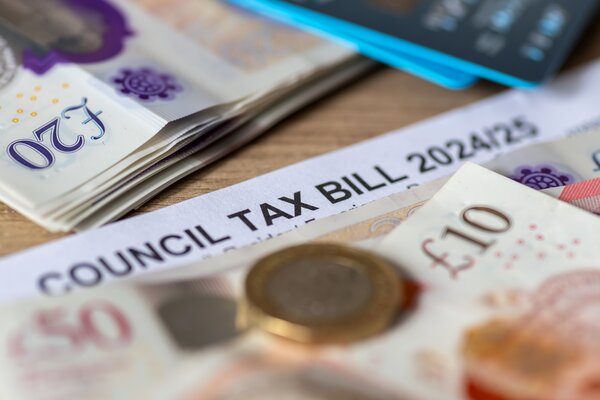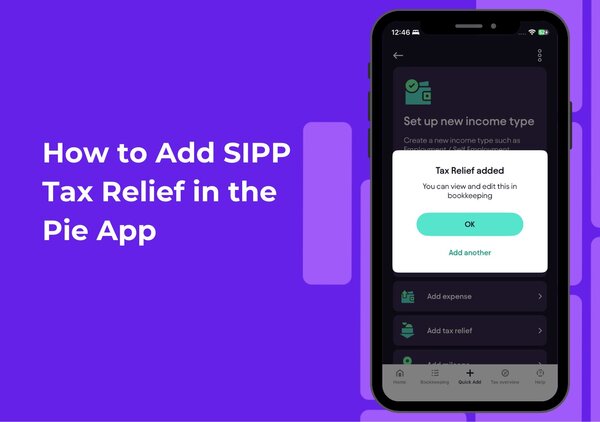Understanding Tax Refunds: How to Successfully Claim Your Overpaid Taxes

When it comes to managing finances, few things can be as rewarding as receiving a tax refund. In the UK, many taxpayers may not even realise that they are owed money from HM Revenue and Customs (HMRC) due to overpaid taxes.
Understanding the ins and outs of the tax refund process not only helps you reclaim funds that are rightfully yours but also allows you to take control of your financial future. In this comprehensive guide, we’ll explore what tax refunds are, who qualifies for them, how to claim your refund, and tips for avoiding overpayments in the future.
In simple terms, a tax refund occurs when you have paid more tax than you owe. This surplus payment can happen for various reasons, including administration errors, fluctuating salaries, or changes to your personal circumstances. It’s essential for taxpayers to understand that receiving a refund is not a bonus but rather an indication that an overpayment has occurred, and you are owed this money back from HMRC.
Reasons for Overpayment
Several reasons can lead to a situation where you may be entitled to a tax refund
Incorrect Tax Codes
Tax code informs your employer how much tax to deduct from your income. If you have recently changed jobs or any circumstances that affect your tax status (like a change in marital status), you might find that the wrong code is being used, leading to over-deduction.


Multiple Jobs
If you've had multiple employment throughout the year without informing your employers, it's possible that deductions have been made that were excessive. This is particularly common during transitional phases, such as moving between jobs.
Claiming Allowances
There are several allowances and deductions you might not be claiming, such as employment-related expenses, that could lead to overpayment of taxes. If you fail to claim these, you might find yourself with a tax refund due to having paid more than necessary.


Changes in Income Levels
If your income fluctuates significantly throughout the year because of any, or combination of the following factors, such as bonuses, overtime, or other temporary earnings, your overall tax liability may decrease, resulting in a refund if too much tax was withheld earlier.
Who is Eligible for a Tax Refund?
Most taxpayers could potentially qualify for a tax refund under certain circumstances. Here are some common scenarios where eligibility might arise.

Full-time or part-time employees, especially when changing jobs, who overpaid due to incorrect codes or unclaimed expenses.Employees

Those who haven’t accounted for all deductions or business expenses may also find themselves eligible for a refund.Self-Employed Individuals

If you earn less than the personal allowance threshold and have paid tax, you might be due a refund.Individuals with Personal Allowances
How to Claim Your Tax Refund
Claiming a tax refund is generally quite straightforward but requires some attention to detail. Here are the steps to follow:
Before starting the claim process, collect all relevant documents that can help substantiate your claim.Gather Necessary Documents

There are a few avenues to approach HMRC for your claim: For a seamless experience in managing your tax claims, use Pie Tax App for expert assistance, accurate submissions, and easy tracking with HMRC.Approach HMRC

After submitting your claim, HMRC will review it. Typically, this process can take a few weeks, although the timeline may vary based on the complexity of your case. You’ll receive either a refund via your chosen payment method or further communication from HMRC if they require additional information.Await Processing

Timeframes and Expectations
While HMRC aims to process refunds quickly, factors such as claim complexity and volume of requests can affect the speed of processing. Generally, once your claim is made, you can expect to wait around 4 to 8 weeks for its conclusion. If there’s a significant delay, consider reaching out to HMRC for updates.

Deadlines for Claiming Your Tax Refund
It’s crucial to be aware of the deadlines for making your tax refund claim. You have four years from the end of the tax year in which the overpayment arose to claim your refund. Missing this deadline means you may lose out on any refund that may be due, and the tax year becomes 'closed' to claims.
In cases of ‘official error’, HMRC might agree to issue repayments for years prior to 2020/21 under their ‘Extra-statutory Concession B41’. This concession applies if the overpayment resulted from an error by HMRC or another Government Department, and there's no dispute about the facts. Here are the specific deadlines:
Tax Year 2020/21
• Ended 5 April 2021
• Claim by 5 April 2025
Tax Year 2021/22
• Ended 5 April 2022
• Claim by 5 April 2026
Tax Year 2022/23
• Ended 5 April 2023
• Claim by 5 April 2027
Tax Year 2023/24
• Ended 5 April 2024
• Claim by 5 April 2028

If You Miss the Deadline
If you think you have overpaid tax in tax years that are 'closed' to claims, Extra-statutory Concession B41 might allow HMRC to repay tax for those earlier years. This rarely applied concession covers situations where HMRC or another government department made an error, and there’s clear evidence of overpayment.
You must provide substantial proof detailing the error to qualify for this concession. HMRC’s guidance outlines that repayments will be made for claims outside the statutory time limit if over-payment of tax arose due to an error by HMRC or another Government Department.
Identifying a Tax Overpayment
To accurately determine if you have overpaid tax, you'll need to calculate your tax liability and compare it to the tax you've paid. Collect documents such as your P60, P45, bank statements, and dividend certificates. Details of rental income and expenses should also be included if applicable. See our page on Tax: keeping records for more information on the necessary documents.


Calculating Your Tax Liability
First, calculate your taxable income, including gross amounts before tax. Deduct any allowable expenses or claim allowances. Next, use the correct tax rates to determine your liability, deducting already paid tax (e.g., PAYE). Our page Working out your tax offers a step-by-step guide. Note that if you’re a Scottish taxpayer, different rates apply to your non-savings and non-dividend income.
Tips to Avoid Overpayments in the Future
Preventing future tax refunds involves a proactive approach to managing your taxes. Here are some practical tips:
Ensure that tax deductions appear consistent and accurate on your payslips to identify any issues early on.Regularly Check Payslips

Be aware of what your tax code means and how changes in circumstances might affect it. If you're uncertain, contact HMRC.Stay Informed About Tax Codes

Review allowances and expenses you may be eligible for every tax year. Claims for job-related expenses can reduce taxable income.Claim Allowances on Time

Track income, expenses, and any communications with HMRC. Having a detailed record simplifies the process of claiming refunds.Keep Detailed Records

If your tax situation is complicated, consider using the Pie Tax app or talking to an advisor to navigate the system and maximise your claims.Consult a Professional

Timescales for Receiving Your Tax Refund Factors
Employment Status
PAYE or self-assessment
The system involved
Online or paper submission
Security check
Random security check by HMRC

The timeline varies based on how you submitted your tax return. Online submissions are faster than paper forms, which can take up to six weeks. Refunds are issued according to your payment instructions, but may be delayed if security checks are necessary.Self Assessment Refunds


For non-self-assessment claims, such as tax relief on employment expenses, HMRC will issue refunds by cheque. Submitting online via your PTA may expedite processing compared to paper forms, saving you valuable time and ensuring a quicker refund.Other Refund Claims
Avoiding and Reporting Tax Scams
HMRC will never contact you via email, text, WhatsApp, or phone call about a tax refund. Recognising and reporting scams is crucial to protecting yourself. Genuine HMRC emails follow the format name@[department].gov.uk; pay attention to grammar, urgency, and specific greetings.

How to Report Scams

Report suspicious emails by forwarding them to phishing@hmrc.gov.ukEmails

Forward scam texts to 60599 (network charges apply) or email phishing@hmrc.gov.uk.Text Messages

Send screenshot to phishing@hmrc.gov.uk to report suspicious activityWhatsApp

Report via HMRC’s Report a suspicious HMRC phone call servicePhone Calls

• Avoid clicking on links or downloading attachments from suspicious messages. • Contact HMRC directly if unsure about a communication. •Notify your bank immediately if any personal details have been disclosedActions to Take

HMRC carries out routine checks to verify the authenticity of self-assessment tax refund claims. Systems use risk assessments to flag potentially fraudulent claims, prompting HMRC to request identity confirmation via letter. Respond promptly to avoid claim cancellations.Security Checks and Verification
Conclusion
In summary, understanding the tax refund process is crucial for taxpayers in the UK who may be owed money from HMRC. By recognising your eligibility, following the appropriate steps to file a claim, and taking preventative measures against future overpayments, you can make the most of your financial situation. Tax refunds should not be viewed as an unexpected bonus but as an essential part of managing your tax responsibilities and ensuring that you’re only paying what you genuinely owe.
If you believe you might be owed a refund, take the time to review your tax situation. Armed with the right knowledge and approach, you can reclaim your money and enjoy the benefits it can bring to your financial health. Don’t hesitate—start your claim today and put your hard-earned money back in your pocket!
For more information on tax refunds and other tax-related matters, visit HMRC’s website. Remember, even small overpayments can add up, and reclaiming what’s due can make a significant difference in your financial well-being. Take action now to ensure every penny works for you.
Frequently Asked Questions
What is a tax refund?
A tax refund occurs when HM Revenue and Customs (HMRC) reimburses you for overpaid taxes. This overpayment can happen due to incorrect tax codes, unclaimed allowances, or changes in your employment status.
Who is eligible for a tax refund?
Eligibility for a tax refund depends on various factors, including incorrect tax codes, multiple employments during a tax year, unclaimed allowances, and fluctuations in income levels. Both employed and self-employed individuals can qualify under certain conditions.
How do I claim my tax refund from HMRC?
To claim your tax refund, gather necessary documents like P60s, P45s, and other income statements. You can then contact HMRC to submit your claim online, via phone, or by letter. If you're no longer employed, you may need to complete a P50 form.
What are the deadlines for claiming a tax refund?
You have four years from the end of the tax year in which the overpayment occurred to claim your refund. For example, for the tax year 2020/21, you must claim by 5 April 2025. Missing this deadline means you may lose out on any refund due.
How can I avoid overpaying taxes in the future?
To avoid future overpayments, regularly check your payslips and tax codes, and ensure you claim all applicable allowances and expenses. Keeping detailed records of your income and expenses and consulting a tax professional can also help.












